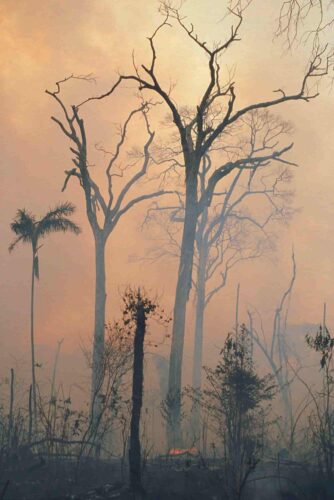
Biodiversity Loss Climate Change
COP30 has Big Plans to Save the Rainforest. Indigenous Activists Say it’s Not Enough. Grist.
• News
Explore Planetary Health
Browse or search our curated collection of research articles, tools, videos, and other Planetary Health resources. Featuring approximately 2,000 research articles and additional tools spanning a variety of thematic areas, our library has information on Planetary Health for every audience — whether you’re exploring the field for the first time, an educator hoping to engage Planetary Health in your classroom, a seasoned scientific researcher, or someone looking to making a difference in your community and in the world. New resources are added every month.
Contact us to suggest items to add to our library and sign up for our newsletter to receive updates on the latest additions.
All Resources
Biodiversity Loss Climate Change
• News
Climate Change Economics and Economic Systems
• Research & Reports
Infectious Diseases Governance and Policy
Zoonotic diseases disproportionately impact low-resource countries. This study uses a One Health lens to examine how Peru selects priorities, chooses policies, and defines organizational roles in preventing and controlling zoonoses within complex multisector systems.
• Research & Reports
Noncommunicable Diseases Climate Change
• News
Infectious Diseases Air Pollution
Bolivia has lost about 12% of its forest cover since 2000. This abstract shows that tree loss due to fires is strongly associated with higher pneumonia incidence in the Bolivian Amazon, underscoring the need for effective forest preservation to protect both ecosystems and public health.
• Meeting Abstracts/ Reports





